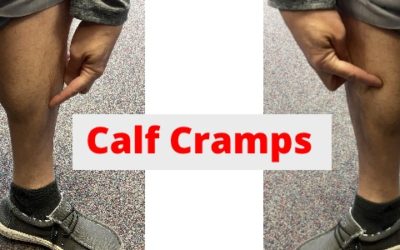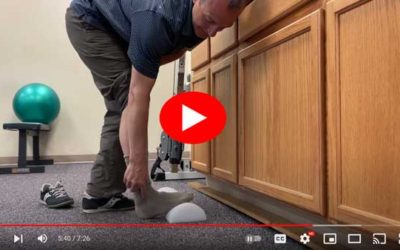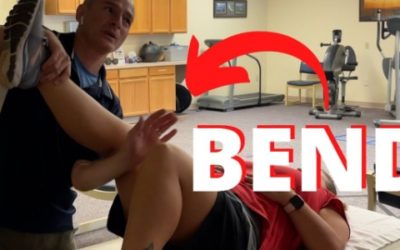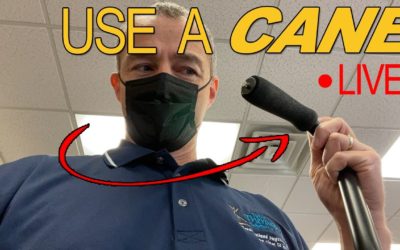Total Knee Replacement Pre Surgery Online Class
This total knee replacement class is 100% online, and totally FREE. In this three part class you will learn what to do 6-weeks before your surgery, the day of surgery, and 12-weeks after surgery.
* Class Dates To Be Announced
FREE Online Knee Replacement Pre-Surgical Class
In this video I share the first part of a three part class on preparing for your knee replacement surgery.
This portion of the class discusses pre-surgical considerations.
Watch time is 17:12 minutes.
What should I be doing 6-weeks before my knee replacement surgery?
There is lots to do before surgery. In this video you will hear some of the often forgotten parts of the pre-surgical plan.
What should I be doing the day of my knee replacement surgery?
The day of knee surgery you will need to follow you surgical teams recommendations.
Recommendations will vary slightly but be sure to utilize checklists to reduce the chances of forgetting any instructions.
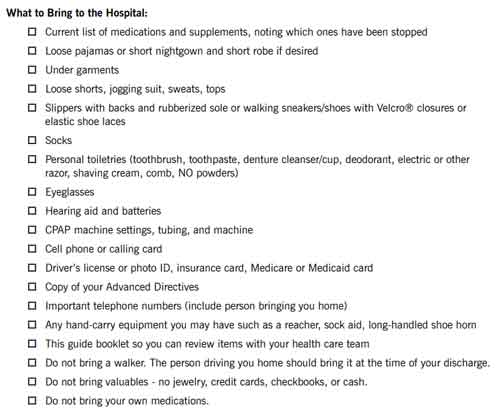
What can I expect during the first 12 weeks after surgery?
Immediately after surgery a physical therapist will help you stand and walk around your recovery room.
If surgery was performed in an outpatient surgery center you will return home the same day. Some patients will stay in the hospital for a short stay or transitioned to a skilled nursing facility if it is not safe to return home.
Therapy will begin the day of surgery and continue for an average of 6 to 12 weeks.
Most patients in the US will us a walker for the first few days then transition to a cane before walking independently without an assistive device.
Physical therapy may start in the home or skilled nursing facility before transitioning to an outpatient clinic or having a mobile therapist perform outpatient therapy in the patient's home.
Checklists
What to Bring to the Hospital on the Day of Your Knee Replacement:
Current list of medications and supplements, noting which ones have been stopped
Loose pajamas or short nightgown and short robe if desired
Under garments
Loose shorts, jogging suit, sweats, tops
Slippers with backs and rubberized sole or walking sneakers/shoes with Velcro® closures or elastic shoe laces
Socks
Personal toiletries (toothbrush, toothpaste, denture cleanser/cup, deodorant, electric or other razor, shaving cream, comb, NO powders)
Eyeglasses
Hearing aid and batteries
CPAP machine settings, tubing, and machine
Cell phone or calling card
Driver’s license or photo ID, insurance card, Medicare or Medicaid card
Copy of your Advanced Directives
Important telephone numbers (include person bringing you home)
Any hand-carry equipment you may have such as a reacher, sock aid, long-handled shoe horn
This guide booklet so you can review items with your health care team
Do not bring a walker. The person driving you home should bring it at the time of your discharge.
Do not bring valuables - no jewelry, credit cards, checkbooks, or cash.
Do not bring your own medications.
To improve my health before surgery:
I quit smoking to improve healing and reduce the risk of infection after surgery.
I had a dental check-up to make sure all my dental needs are taken care of before surgery.
I received a flu vaccination (if during flu season -- October through March).
I am eating lightly the week before my surgery to help reduce the risk of constipation.
I have increased fluids and fiber in my diet as well.
I had my diabetes checked, and it is under control (if applicable).
Things to do before surgery:
I have verified with my insurance company that I have coverage for my surgery.
I have attended the total joint replacement education class.
I have received my pre-admission testing schedule. If I have not received my schedule with in two weeks before my surgery, I will contact the surgery scheduling office.
I have completed all lab work requested from my surgeon’s office.
I will call my Specialty Care Coordinator if I have questions or concerns about my surgery.
I have talked to my Specialty Care Coordinator or surgeon about discharge options.
I have completed a Living Will or Health Care Power-of-Attorney to have on file in my chart.
I have not shaved my legs 3 days before my surgery.
I have arranged for someone to drive me home when I’m discharged from the hospital.
I have arranged for someone to drive me to my follow-up appointments.
More Blog Posts ...
Knee Pain 1 Year After Knee Replacement Surgery
Nearly 20% of patients who have undergone total knee replacement are not happy with the outcome. [1] Dr. Scott Albright, MD. Dr. Albright is a non-surgical orthopedic specialist and in my opion one of the best sports medicine doctors in Middletown, Ohio. He has...
Is a recumbent bike good for knee replacement?
Riding a recumbent bike after a total knee replacement can be a great way to increase range of motion, increase cardiorespiratory fitness, and improve overall well being. In this video I explain some tips and tricks we use in the clinic to help clients maximize the benefit of riding this bike.
Calf Cramps How to STOP Calf Cramps
How to Stop Calf Cramps at Night When They are Happening One of the must frustrating times to get a calf cramp is in the middle of the night. You may be sound asleep when all of a sudden you experience this intense shooting pain which causes you to draw up in writhing...
3 TIPS to STOP Ankle Pain After Knee Replacement Surgery
Ankle pain after total knee replacement surgery is very common. Osteoarthritis of the knee causes the knee to change shape over time. The knee replacement surgery will correct any malalignment of the knee, but it causes excessive stress on the ankle and hip. In this...
Is a Manipulation Under Anesthesia MUA Painful
No, during a manipulation under anesthresia after a total knee replacement you will be placed under sedation and the procedure is painless. During the following 24 to 48-hours you may feel some increased soreness and swelling, but very few patients actually reqort...
Recovery After MUA Manipulation Under Anesthesia [VIDEO]
Video SeriesAnthony Maritato, PT has been a licensed physical therapist and private practice owner since 2006. Ohio license #PT011602. Anthony has been passionate about helping patients recover from total knee replacement surgery as well as rotator cuff repair surgery.
Hip and Groin Pain After Total Knee Replacement Surgery
I couldn't find peer-reviewed data to support an answer to this question, but as a physical therapist with 20 years of history in the clinic, I can tell you that anterior hip and groin pain after a total knee replacement is not uncommon. As of writing this article on...
How Painful Is A Total Knee Replacement
How long does the pain last after a knee replacement? * How bad is the pain after knee replacement surgery? * Why is a knee replacement so painful? * What helps pain after a total knee replacement?
2 Reasons why your knee replacement sounds like Velcro tearing!
The two reasons why your total knee replacement sounds like Velcro tearing when standing up from a chair or walking downstairs are because the underside of your patella is rubbing against the bottom of your femur or you are experiencing the sensation of scar tissue...
When can I switch from a walker to a cane?
Between 10 and 14 days after total knee replacement surgery, most patients have switched from a walker to a cane. Of course, some patients never use a cane and just progress from the walker to no assistive device after a couple of days, while other patients depend on...

